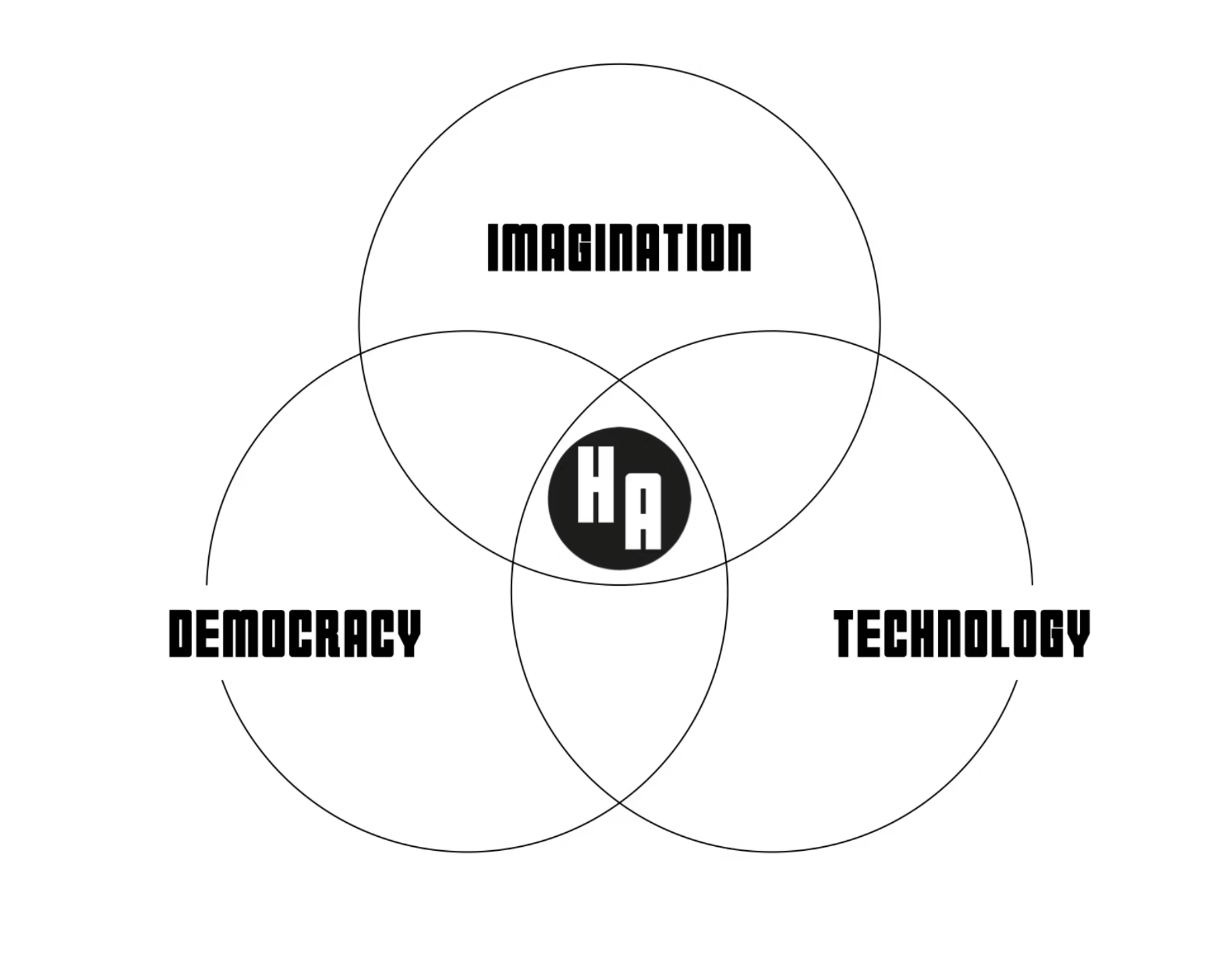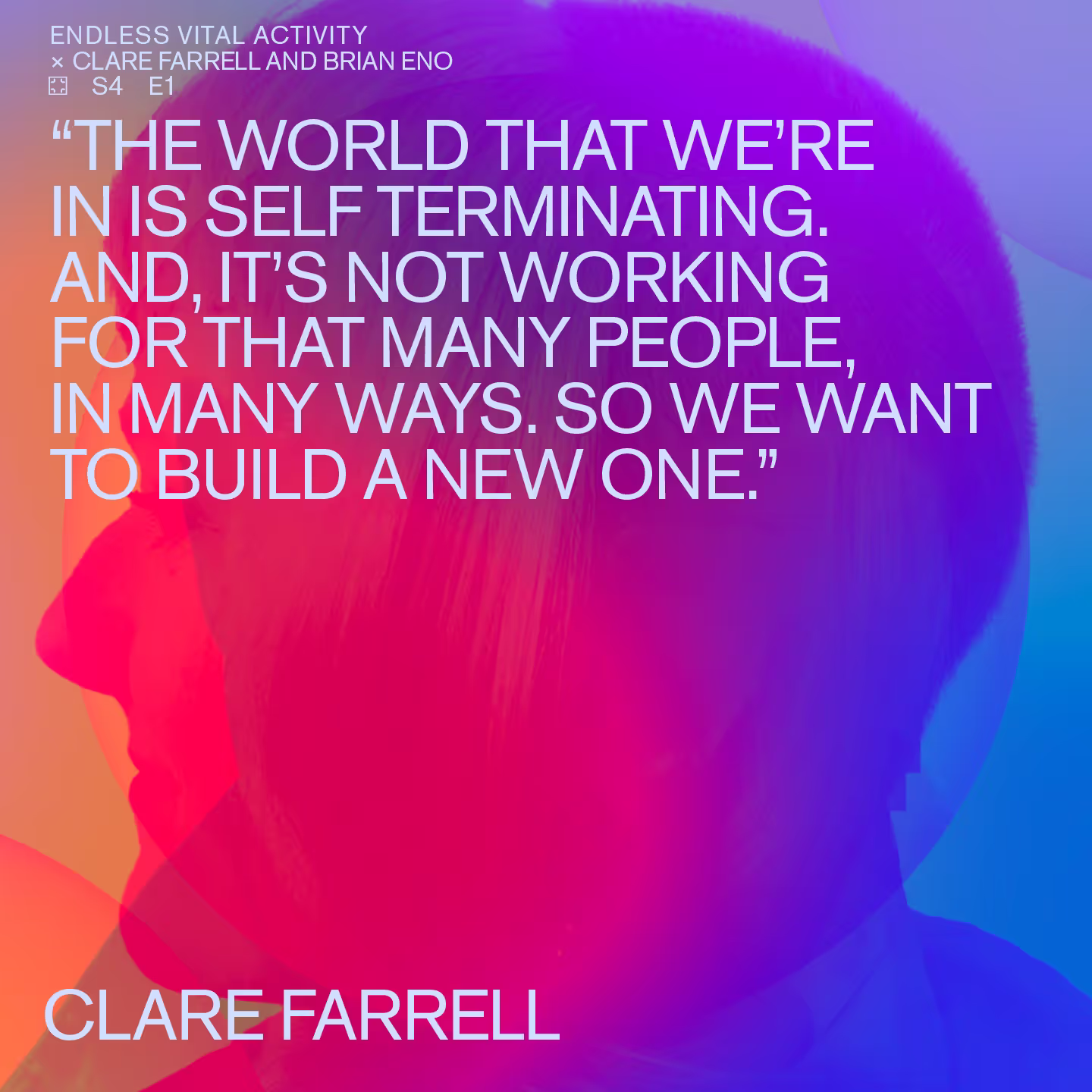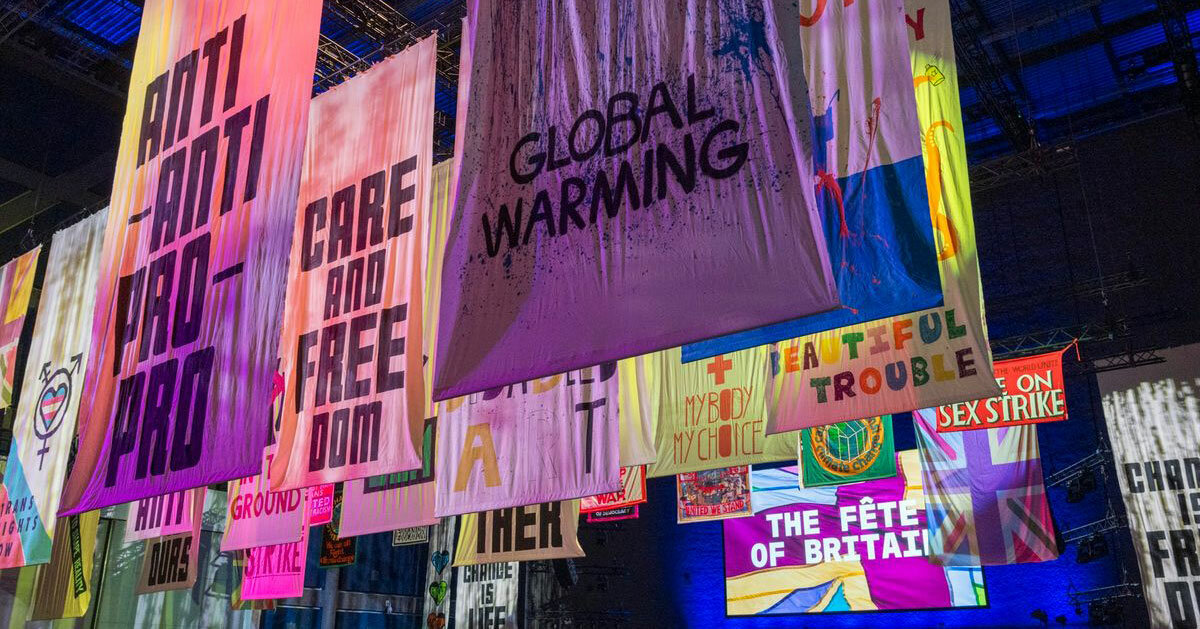Brian Eno the driving force behind new social justice collective called Hard Art
Does art hold the key to progress?

Brian Eno must be one of the world's most prolific innovators.
It's not an easy job to pin him down to being a specialist in any one genre (something that must drive the rigidly-analytical folk who certainly don't bother reading this site...totally mad).
But what is of real significant interest right now is that he has put his hand up to be the driving force behind a new social justice collective called Hard Art.
Hard Art is 'a cultural collective standing in solidarity in the face of climate and democratic collapse.'
According to DesignBoom:
The collective was created in late 2022, when creatives, activists, democracy specialists, faith leaders, economists, and scientists began gathering in the studio of musician and artist Brian Eno. The meetings were prompted by the realization that individuals across society were striving for the urgent change needed in our world, but often felt isolated in their efforts.
Along with Eno the collective has a seriously impressive list of members that include:
Dr. Rowan Williams (Former Archbishop of Canterbury)
Emma Thompson (Actor and screenwriter)
Es Devlin (Artist/stage designer)
Ben Okri (Author)
Juliet Stevenson (Actor)
Mariana Mazzucato (Economist)
Kate Raworth (Economist)
Yanis Varoufakis (Economist and politician)

This development is one to take note as quite a strong signal that the style of the climate change conversation is changing.
For too long we've listened to the drone of scientists, politicians and teenagers giving us the facts of the climate crisis. This social collective however is different. What we have here is a community of people coming together who are specialists at shaping and shifting culture on a mass scale - using art.
'We have the ability to use art as a set of antennae that enable us to feel our way into uncertain futures, futures about which there isn’t much evidence or data to work with. And in this sense, the analytical science way of viewing those won’t work’. This need to produce art is deep-rooted within us as a species, with Eno keen to stress that ‘children learn by play, but adults play through art’.' - via
Art not only moves people by connecting with their inner emotional world, but also gives society the tools to explore imagined realities on an objective plane.
The Alternative puts this point across so perfectly:
Here art serves a vital purpose. One of the very important functions of art is synchronisation; the attempt to keep all of our brains in some kind of relatively similar world…I was on a bus coming down Kilburn High Road and heard two ladies discussing what they saw on EastEnders the night before. From listening in, it was apparent that one of the characters on the show decided to admit she was gay to her family, just hours before she was supposed to marry her male fiancée. They were discussing the way it unfolded and asking questions such as “should she have told her fiancé before her parents?”. And despite initial disagreement, the pair ultimately came to a consensus, reaching synchronisation of how to feel about it.
So art is the only mechanism for resynchronising across people we don’t know. For example, I could ask a stranger; “is the future more 1984 or Brave New World?” And as long as we both have read those works, we can share these great big metaphors, and they can stimulate discussion between us.. We learn things about each other by seeing the similarities and differences of how we experience art together. This is a testament to the power of art.
It's bewildering to thing just how undervalued art is today. We tend to value skillsets and professions that honestly produce absolutely nothing new (like accountancy and law) instead of a vocation that touches the soul of people.
It really just shows you where the world is right now, but there are certainly increasing signals of change on the horizon.
More:





